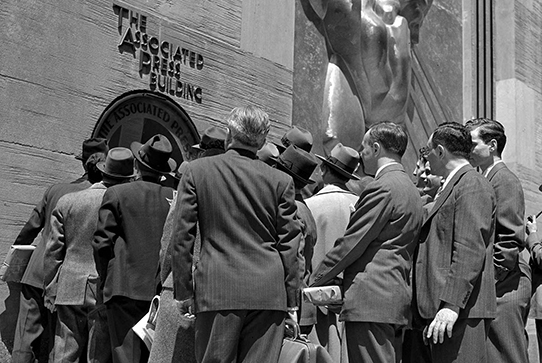
If you did not know that a cooperative plays a vital role in announcing the U.S. election outcome, you are not alone. Not many are aware that the The Associated Press (AP), now a 174 year old cooperative, has a long history of being a reliable source for news and election coverage. During past presidential elections, many news outlets have looked to AP to see which candidate has won each state and to determine the vote count. This daunting responsibility is not taken lightly by the news cooperative.
The historic presidential election taking place today is one being closely watched by world at large. At press, over 60 million people have already voted through early and mail-in voting, and 33+ million have voted in person with millions more expected to vote on Election Day. As a cooperative, the Associated Press has the unique opportunity to guide its reporting and integrity based off of not only journalistic principles, but also the cooperative principles.
CALLOUT: “NPR and other news organizations rely on the Associated Press for election night. AP’s Deputy Managing Editor, David Scott, tells us how he and his team make the call on election results.” Read Here
The Associated Press was founded as a cooperative in 1846. At the time, five New York City newspapers funded a pony express route through Alabama to bring news of the Mexican War to the north faster than the U.S. Post Office could deliver it. Today, AP operates in 250 locations in 100 countries, relaying breaking news on war, conflict, and elections, and producing enterprise reports that tell the world’s stories.
As an independent, not-for-profit news cooperative, its members are comprised of U.S. newspapers and broadcasters, focused on the mission to inform the world. Just like any cooperative, AP members elect a board of directors to provide corporate direction according to its bylaws and the cooperative principles. Its success as a news cooperative is due in part to the size and reach of its newspaper members. The organization’s reputation as a trusted news source spans across multiple subjects, but it is arguably strongest during elections.
The Associated Press has counted the vote in U.S. elections since 1848, including races at the national, state and local levels in all 50 states. The cooperative collects and verifies returns in every county, parish, city and town across the U.S. and declares winners in over 5,000 contests. Since there is no specific provision in the Constitution stating how the election results will be made public, generations have looked to the AP as the leading source of information for elections.
How does the Associated Press call a state for one candidate or the other during a presidential election? In a new segment for the NPR Politics Podcast, hosts Asma Khalid and Scott Detrow interview one of the deputy managing editors of AP, David Scott, to explore how the Associated Press declares an ultimate winner.


